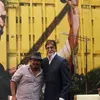From Shyam Benegal to Anurag Kashyap, Neeraj Kabi has experienced the finest. And he's hungry for more
Despite being a prime-time journalist, Neeraj Kabi’s Sanjeev Mehra – the character he brings to life in Amazon Prime Video’s Paatal Lok – neither looks nor sounds like the ones we see these days. The actor shares the whys and the hows in a candid chat with YS Weekender.
Very few actors in Bollywood have had the privilege of working with filmmakers hailing from completely different times and styles of storytelling. Ever fewer can boast of having worked with cinema stalwarts such as Shyam Benegal, Goutam Ghose, and Anurag Kashyap.
But Neeraj Kabi – the undaunted journalist from Paatal Lok, the poetic and romantic Akhtar Baig from Taj Mahal 1989, and embodiment of corruption, DCP Parulkar from Sacred Games – has the rare privilege of having experienced both.

In a still from Amazon Prime Video's Paatal Lok where Neeraj Kabi plays journalist Sanjeev Mehra
In a career spanning almost two decades, the self-taught actor has not only rubbed shoulders with the finest of Indian cinema but also has made his presence felt on the big screen, charming his way into the hearts of the audience with characters that are real, flawed, and relatable.
Perhaps, this is the reason, Sanjeev Mehra’ fall from the grace – Neeraj’s latest from Prime Video’s Paatal Lok – doesn’t stick out like the proverbial sore thumb in the narrative. For, the audience has already been given a taste of what “old school journalism”, the type that personifies journalistic ethics like courage, integrity, honesty, and dignity, looks and feels like. And what unfortunate series of events could trigger a man with all the above qualities on a path of deceit and disaster.
In conversation with YS Weekender, the actor takes us into the making of Sanjeev Mehra, the ideals he lives for, and why the character is far from the boisterous image of journalism that we have become familiar with. Neeraj also sheds light on his brand of acting, his technique that draws from Indian disciplines and sensibilities, and how he is “patiently” waiting for the kind of work that is beyond what he has done so far.
Edited excerpts from the interview:
YSWeekender: As an actor, what does it take to deliver hard-hitting performances as you have been doing with Ship of Theseus, Talvar, Sacred Games and now Paatal Lok? What’s your technique?
Neeraj Kabi: My technique is my own. I have developed and devised my own grammar of acting over many years now. It is a combination of many areas of work and essentially rests on response, logic, transformation and preparation. I do not work on reaction, imagination and improvisation.
There is always a training routine that I devise immediately how to create the physical intelligence of the character I am about to play. This includes certain combinations of Indian martial forms, classical or folk dance and yoga asanas. Then I dive into the script and dig deep into it searching for the necessary psychological elements the character is made up of and the overall philosophy of this character.
That helps me in finding my state of being in every scene and its corresponding emotions. There is a lot of research involved and the inclusion of my personal life experiences. It is important to play the mind of the character and the philosophy he lives by. And no, it is not method acting nor any technique from the West or Europe that I resort to. My technique has a lot of the Indian disciplines and sensibilities.
YSW: Are you satisfied with your performance in Paatal Lok? I read somewhere that you were waiting for something bigger in your career – is Sanjeev Mehra that big, bold character?
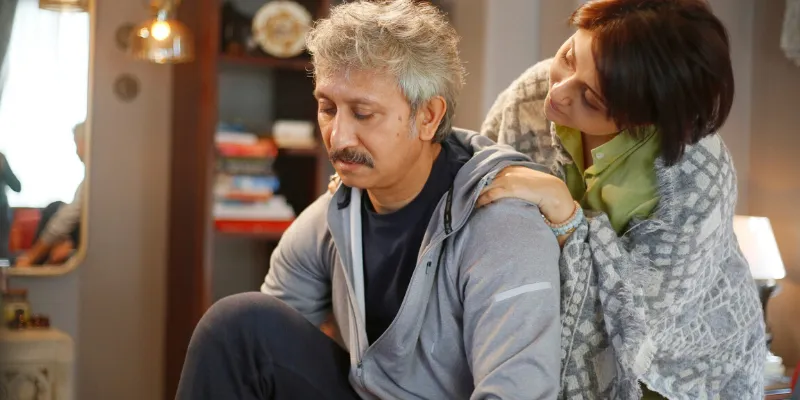
NK: I am very satisfied with my performance as Sanjeev Mehra in Paatal Lok. Despite having performed complex roles in Ship of Theseus, Talvar, Byomkesh Bakshi and Sacred Games and now Paatal Lok, I am waiting patiently for the kind of work that is beyond what I have done so far.
When I say waiting, I don’t mean putting my feet up and waiting for destiny to happen. I am preparing for it physically, emotionally, mentally and experientially every day.
YSW: Your portrayal of a prime-time TV journalist is so unlike what we see in reality. What was your approach going into this?
NK: Sanjeev Mehra belongs to the old school journalism of the 1990s where courage, integrity, honesty and dignity were the foundations of their character. They dealt with pressure in a different manner. There was grace more than being “loud”. Sanjeev was a hero, a poster boy in his days. Which is why this conscious choice of a certain way to perform him.
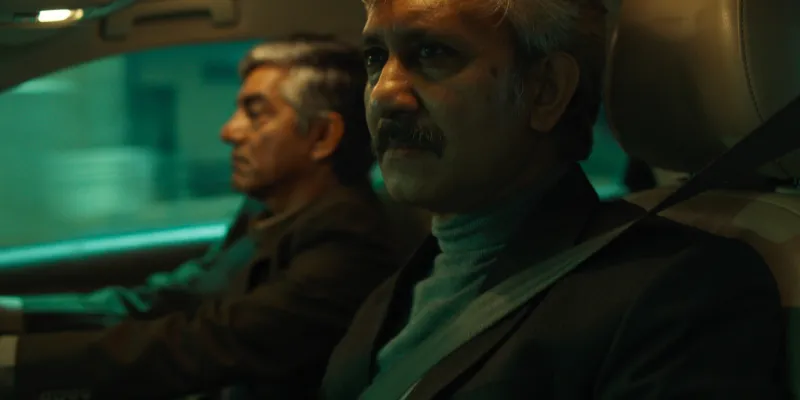
To prepare, I read and researched the great journalists of our country of the 90s, trying to understand their philosophy and mindsets. I viewed a lot of their documented footage as well. One had to understand journalism at large as an actor. Then there was a quick visit to a news channel in Delhi to understand the process of how a piece of news travels and what occupies the mind of a journalist when at work. With this skeletal structure I proceeded to build the character with my craft and techniques.
I remember defining specific psychological spaces that Sanjeev slips into from scene to scene. This was logically worked out from a detailed reading of the script. It helped me understand the state of being of the character at various moments and therefore understand the corresponding emotion and response to that specific scene. These preparations are complex and that’s how I function as an actor.
YSW: What is it about you and layered, grey characters – Sanjeev Mehra in Paatal Lok, the monk in Ship of Theseus, and Dr Guha in Detective Byomkesh Bakshy? Do you prefer these roles over romantic, candy-fluff protagonists?
NK: No, I prefer all kinds of roles. Even if a particular genre is offered twice to me, I interpret and perform it yet differently. No two roles of mine, even if they are both grey or villainous, look the same. Yes, I do like layered and complex characters because that is what human life is all about. In fact, I make them complex if they are not written like that.
YSW: Not long before watching Paatal Lok, I binge-watched Taj Mahal 1989. And Akhtar Baig couldn’t have been more different from Sanjeev Mehra. How do you seamlessly transition between such varied personalities? Is this where your years of theatre experience comes in?
NK: Well, thank you for that compliment! Yes, that’s what self-training is all about. You have to live with the consciousness of an actor just as a musician lives with the consciousness of music. I strongly believe in the process of transformation of an actor into that of the character. I teach acting, direct theatre productions and act in films. All these feed into each other helping me widen my experience of human beings.
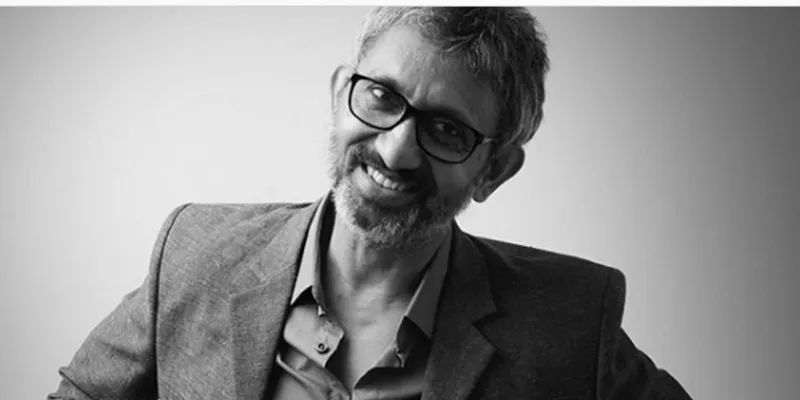
YSW: What’s the biggest thing you have learned from theatre?
NK: Theatre is the foundation for acting. Theatre is the space for an actor where the actor is the supreme embodiment of that space. This is where you understand script analysis, voice, emotion, the use of your physical body, breath and rhythm, movement and space, working with a live audience, understanding scenes and their approach, characterisation, interpretation etc.
Also, theatre has great writing. You are very close to the written word in the theatre and the richness of language. This is the complete education for an actor. This is where the actor is born, nurtured and cultured. Nothing and nothing at all can compensate for the rigour and training of theatre.
YSW: A very few actors perhaps can say that they have worked with such a range of filmmakers – from Shyam Benegal to Goutam Ghose and Anurag Kashyap. How has the learning curve been like? What’s the difference working with these three filmmakers representing different eras of storytelling?
NK: Each of them is a stalwart in their own right. Of course, Shyam Benegal Sir and Goutam Da are very senior film makers with such a rich legacy. The experience of working with these stalwarts is nothing short of a dream come true. Every moment you spend with them, every scene you do with them, every word they speak is priceless treasure. Their entire life journey stands in front of you at that moment and you feel humbled and blessed. Anurag is much much younger. But the body of work he has been creating is so unique and so vast in nature. His work has a different quality of excellence altogether.
More importantly Anurag Kashyap is such a treat to work with. He is so good with actors and brings out extraordinary results. A very encouraging and generous director with such a vast knowledge of every department of film making and world cinema. I was so overjoyed acting under his direction during Sacred Games that I can’t wait to work with him again. He has the kind of passion and madness that I love and respect.
YSW: You shared the set and the screen with Irrfan Khan once, right? Now, we often hear about the Irrfan magic but what is it exactly about him that made the world grieve collectively when he passed away?
NK: Irrfan was a great craftsman.
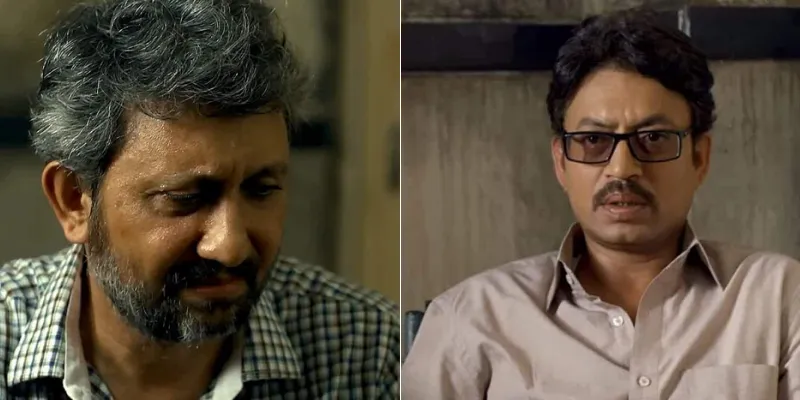
In 2015's Talvar, Neeraj Kabi shares screen space with actor Irrfan Khan
He had worked very hard to create himself as one of the greatest actors we saw. His entire journey was about honing his skills, reading and displaying performances that were prepared with extreme care, complexity and hard work. When you are such an artist, coming from such a simple upbringing, you give hope to humanity at large. When such a hope is snatched away so young dealing with so much pain, you cry. You grieve the loss as a personal one because you too like others hold him as your own. There is a bond that great actors have with their audience and Irrfan was a testimony to that. The work of an artist is beyond the artist himself. You don’t need to know his personal life. It is already there in his work that you see.
YSW: Lastly, what’s more fulfilling for you – acting or teaching aspiring actors the craft?
NK: Both!
Edited by Asha Chowdary



